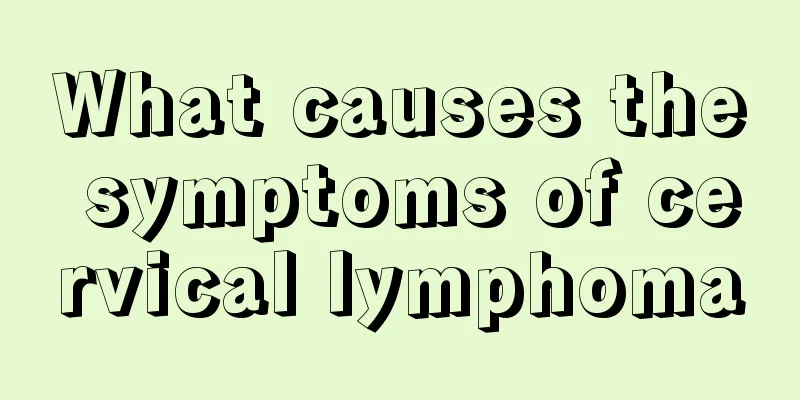Nail loss after hand, foot and mouth disease

|
Many children will suffer from hand, foot and mouth disease because of their low immunity and weak resistance to viruses. They like to suck their fingers and will develop hand, foot and mouth disease. Hand, foot and mouth disease is an infectious disease. The clinical manifestations of hand, foot and mouth disease are ulcers in the mouth and tongue, red rashes on the hands and feet, anorexia, vomiting, etc. Generally, children with hand, foot and mouth disease will be hospitalized for treatment on the advice of a doctor. After recovery from hand, foot and mouth disease, the diseased nails will become necrotic, and then without growth hormone, the nails will fall off. The causes of spontaneous nail loss include iron deficiency anemia, calcium deficiency, vitamin and trace element deficiency, malnutrition, etc., which are generally more common in trace element deficiency and can cause weight loss, anorexia, susceptibility to colds, and low immunity. It is recommended to go to the hospital for a trace element test to clarify the diagnosis. Generally, treatment requires trace element supplementation, such as Xiao Shierkang. 1Does hand, foot and mouth disease cause nail loss? Only a few patients with hand, foot and mouth disease will have their nails fall off, because patients with hand, foot and mouth disease will have rashes on their hands and feet. If the situation is serious, there is a chance of bacterial infection. If the rash is located near the fingernails or toenails, and the wound is not treated properly, the virus may enter through the nails, causing nail falling off. 2Why do children's nails fall off after hand, foot and mouth disease? The reason why children's nails fall off after hand, foot and mouth disease is that local inflammation of the hands and feet during the illness causes damage to the nail matrix, which is closely related to nail formation, causing temporary inhibition of the nail matrix function. When the inhibitory function of the nail matrix is more severe, it will lead to nail formation disorders and nail loss. 3 What to do if your child's nails fall off after hand, foot and mouth disease After a child's nails fall off due to hand, foot and mouth disease, new nails will slowly grow out after three to six months. However, be careful not to actively pull out the remaining nails to avoid skin damage and prevent secondary infection when the nails fall off. You can appropriately supplement with vitamins A, B, zinc gluconate and calcium to promote nail growth. Pay attention to hand hygiene in daily care to prevent children from pulling, scraping, or tugging diseased nails. 4 How should parents care for their children after they have hand, foot and mouth disease? isolation When a baby gets hand, foot and mouth disease, the baby should be isolated in time to avoid cross infection. At the same time, the baby’s daily necessities should be boiled and disinfected or exposed to the sun for disinfection. Maintain hygiene If the baby suffers from hand, foot and mouth disease, the mother should keep the home environment comfortable and ensure air circulation. The baby's clothes and bedding should be kept clean and changed frequently. Eat a light diet If your baby has hand, foot and mouth disease, you should feed him more warm water or some easily digestible liquid food. Avoid giving him cold, spicy and irritating food. Also, do not give him acidic drinks containing fruit juice. Pay attention to oral care Mothers should pay special attention to keeping their baby's oral cavity clean to prevent secondary bacterial infection, and rinse their mouth with warm water immediately after meals. Antipyretic If your baby has hand, foot and mouth disease, you should measure his body temperature in time. If the temperature exceeds 38.5 degrees, use physical cooling methods to reduce the fever. Hospitalization If the baby's hand, foot and mouth disease symptoms are very serious, such as persistent high fever, loss of appetite, mental depression, vomiting, coma, convulsions, etc., it means that the condition has significantly worsened and requires timely hospitalization. |
<<: How to use bleach for washing clothes?
>>: The neck suddenly grew fleshy grains
Recommend
Treatment of thyroid nodule calcification, these situations require surgery
Thyroid calcification is usually not life-threate...
Which is better, eyebrow cream or eyebrow pencil
Nowadays, beauty-conscious girls not only use eye...
Top 10 health-preserving recipes from top American experts
Health comes from every detail of life. Practical...
What to do if wisdom teeth become inflamed and swollen? What are the treatment methods?
Wisdom teeth erupt relatively late, and the infla...
Skin cancer is a heritable mutation
When skin cancer occurs, itching symptoms will oc...
Are there any sequelae after the ovarian tumor is cured?
Many women suffer from ovarian tumors. An effecti...
How to wash silverfish
Silverfish is also called freshwater fish. It is ...
What is medullary carcinoma? What are the treatments for medullary carcinoma?
In clinical practice, there are various types of ...
How to use the meridian tapping stick
Nowadays, when everyone pays attention to physica...
How to treat cough caused by chemotherapy for lung cancer
With the level of modern medicine, there are many...
What are the eight steps to boiling a cast iron pot
There are many people who use cast iron pots in l...
Why do pimples and itchiness appear on my breasts?
Many people subconsciously believe that they will...
Is it contagious to eat with skin cancer?
Many patients and friends are always worried abou...
What are the methods for separating and purifying proteins
In daily life, we don't know much about some ...
How to prevent fetal hydrocephalus
Fetal hydrocephalus is a congenital disease cause...









